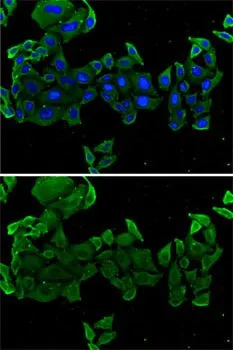
ICC/IF analysis of U2OS cells using GTX33106 COMP antibody. Blue : DAPI
COMP antibody
GTX33106
ApplicationsImmunoFluorescence, Western Blot, ImmunoCytoChemistry
Product group Antibodies
ReactivityHuman, Mouse
TargetCOMP
Overview
- SupplierGeneTex
- Product NameCOMP antibody
- Delivery Days Customer9
- Application Supplier NoteWB: 1:500 - 1:2000. ICC/IF: 1:10 - 1:100. *Optimal dilutions/concentrations should be determined by the researcher.Not tested in other applications.
- ApplicationsImmunoFluorescence, Western Blot, ImmunoCytoChemistry
- CertificationResearch Use Only
- ClonalityPolyclonal
- ConjugateUnconjugated
- Gene ID1311
- Target nameCOMP
- Target descriptioncartilage oligomeric matrix protein
- Target synonymsCTS2, EDM1, EPD1, MED, PSACH, THBS5, TSP-5, TSP5, cartilage oligomeric matrix protein, cartilage oligomeric matrix protein (pseudoachondroplasia, epiphyseal dysplasia 1, multiple), multiple epiphyseal dysplasia, pseudoachondroplasia (epiphyseal dysplasia 1, multiple), thrombospondin-5
- HostRabbit
- IsotypeIgG
- Protein IDP49747
- Protein NameCartilage oligomeric matrix protein
- Scientific DescriptionThe protein encoded by this gene is a noncollagenous extracellular matrix (ECM) protein. It consists of five identical glycoprotein subunits, each with EGF-like and calcium-binding (thrombospondin-like) domains. Oligomerization results from formation of a five-stranded coiled coil and disulfides. Binding to other ECM proteins such as collagen appears to depend on divalent cations. Contraction or expansion of a 5 aa aspartate repeat and other mutations can cause pseudochondroplasia (PSACH) and multiple epiphyseal dysplasia (MED). [provided by RefSeq, Jul 2016]
- ReactivityHuman, Mouse
- Storage Instruction-20°C or -80°C,2°C to 8°C
- UNSPSC41116161

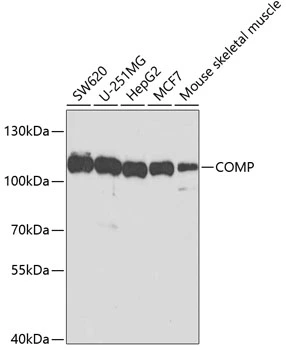
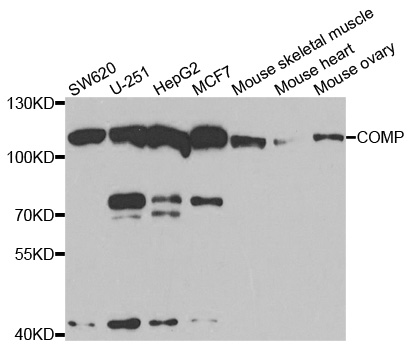

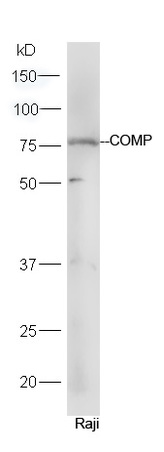

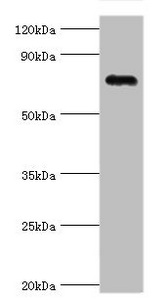

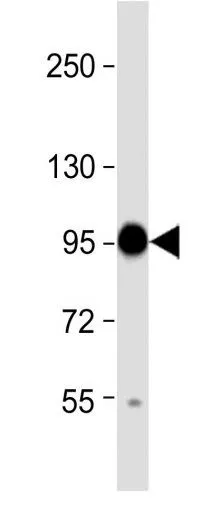
![Indirect ELISA analysis was performed by coating the plate with recombinant Human COMP protein, His tag (GTX140818-pro) (12.14-0.19 nM). Coated protein was probed with COMP antibody [HL3215] (GTX640855) (1 μg/mL). Goat anti-rabbit IgG antibody (HRP) (GTX213110-01) (1:10000) was used to detect the bound primary antibody.](https://www.genetex.com/upload/website/prouct_img/normal/GTX640855/GTX640855_T-45502_20240913_ELISA_Indirect_24091901_913.webp)